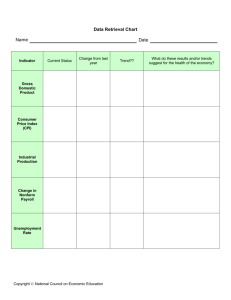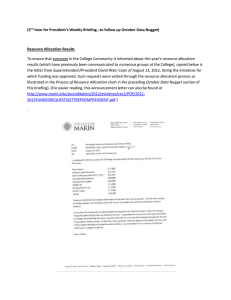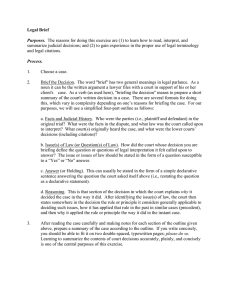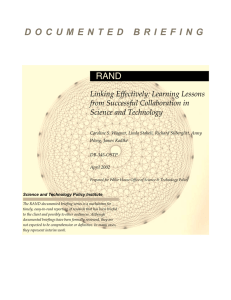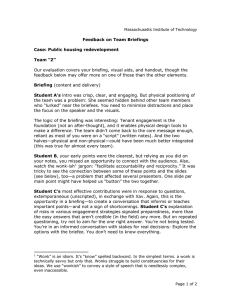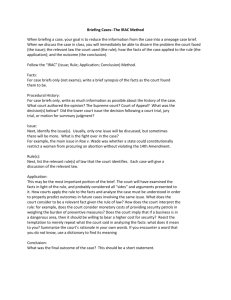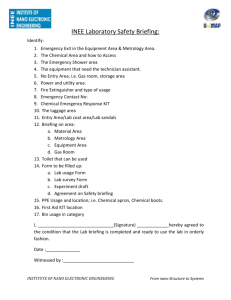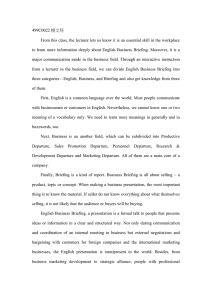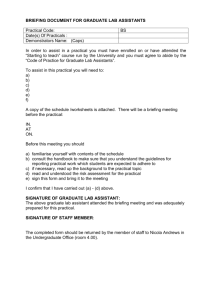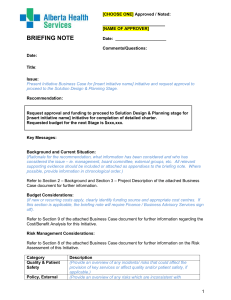poster - Ohio Hospital Association
advertisement
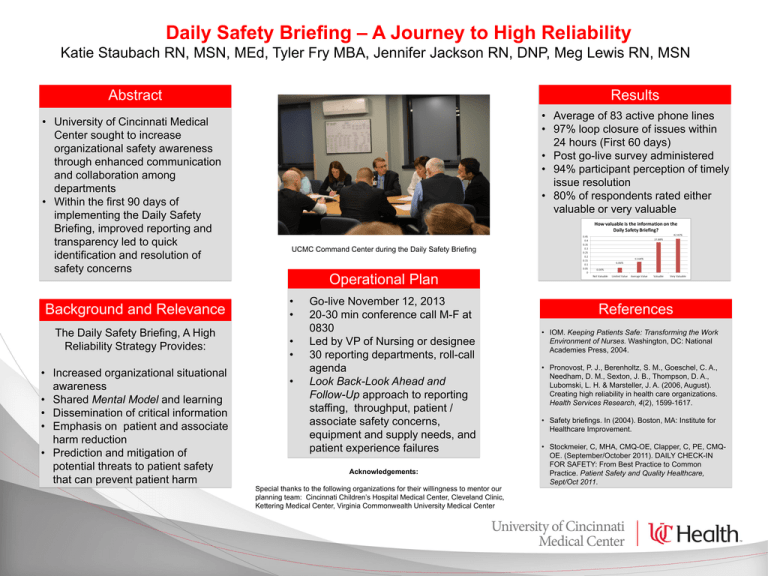
Daily Safety Briefing – A Journey to High Reliability Katie Staubach RN, MSN, MEd, Tyler Fry MBA, Jennifer Jackson RN, DNP, Meg Lewis RN, MSN Abstract • University of Cincinnati Medical Center sought to increase organizational safety awareness through enhanced communication and collaboration among departments • Within the first 90 days of implementing the Daily Safety Briefing, improved reporting and transparency led to quick identification and resolution of safety concerns Background and Relevance The Daily Safety Briefing, A High Reliability Strategy Provides: • Increased organizational situational awareness • Shared Mental Model and learning • Dissemination of critical information • Emphasis on patient and associate harm reduction • Prediction and mitigation of potential threats to patient safety that can prevent patient harm Results • Average of 83 active phone lines • 97% loop closure of issues within 24 hours (First 60 days) • Post go-live survey administered • 94% participant perception of timely issue resolution • 80% of respondents rated either valuable or very valuable UCMC Command Center during the Daily Safety Briefing Operational Plan • • • • • Go-live November 12, 2013 20-30 min conference call M-F at 0830 Led by VP of Nursing or designee 30 reporting departments, roll-call agenda Look Back-Look Ahead and Follow-Up approach to reporting staffing, throughput, patient / associate safety concerns, equipment and supply needs, and patient experience failures Acknowledgements: Special thanks to the following organizations for their willingness to mentor our planning team: Cincinnati Children’s Hospital Medical Center, Cleveland Clinic, Kettering Medical Center, Virginia Commonwealth University Medical Center References • IOM. Keeping Patients Safe: Transforming the Work Environment of Nurses. Washington, DC: National Academies Press, 2004. • Pronovost, P. J., Berenholtz, S. M., Goeschel, C. A., Needham, D. M., Sexton, J. B., Thompson, D. A., Lubomski, L. H. & Marsteller, J. A. (2006, August). Creating high reliability in health care organizations. Health Services Research, 4(2), 1599-1617. • Safety briefings. In (2004). Boston, MA: Institute for Healthcare Improvement. • Stockmeier, C, MHA, CMQ-OE, Clapper, C, PE, CMQOE. (September/October 2011). DAILY CHECK-IN FOR SAFETY: From Best Practice to Common Practice. Patient Safety and Quality Healthcare, Sept/Oct 2011.
